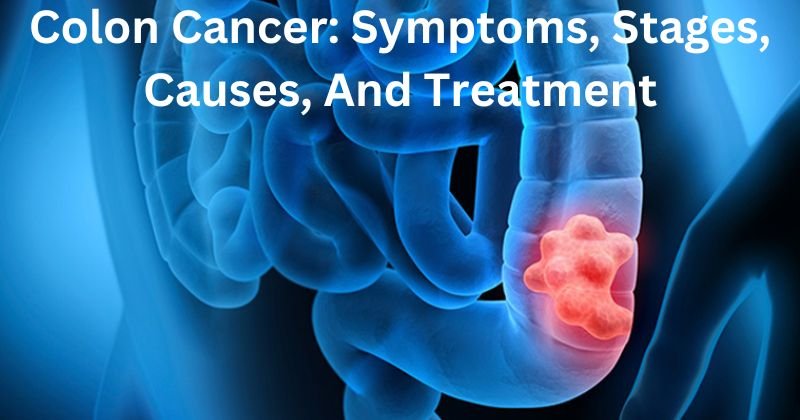Colon cancer, one of the most common forms of cancer, primarily affects the large intestine (colon). This form of cancer develops when abnormal cells in the colon or rectum begin to grow uncontrollably. It can be a daunting diagnosis for many, but with advancements in medical science, early detection and treatment options have become increasingly effective. In this blog, we will explore the symptoms, stages, causes, and treatment options for colon cancer, including an important discussion on the colon cancer treatment cost and the colon cancer treatment cost in India.
Symptoms of Colon Cancer
Colon cancer may not present immediate or obvious symptoms, which is why regular screenings are essential for early detection. Common symptoms that may signal the onset of colon cancer include:
- Changes in bowel habits: This may involve diarrhea, constipation, or a change in the consistency of your stool.
- Blood in stool: Noticeable blood in your stool, which can appear red or dark, is a significant sign.
- Unexplained weight loss: Losing weight without changing your diet or exercise routine can be a concerning symptom.
- Abdominal pain or cramping: Persistent discomfort in the abdomen, bloating, or cramps may occur.
- Fatigue: A constant feeling of fatigue or weakness may indicate the presence of colon cancer.
- Nausea or vomiting: Particularly when the cancer obstructs the colon, you may feel nauseous or even vomit.
While these symptoms could be indicative of other conditions, it is important to see a healthcare professional for proper diagnosis and testing.
Stages of Colon Cancer
Colon cancer is typically categorized into four stages, which help doctors determine the extent of the disease and develop an appropriate treatment plan. These stages are as follows:
- Stage 0 (Carcinoma in Situ): In this earliest stage, the cancer is confined to the inner lining of the colon and has not spread to nearby tissues.
- Stage I: Cancer has spread to the inner layers of the colon but has not yet reached lymph nodes or other distant organs.
- Stage II: The cancer has grown through the colon wall and may have reached nearby tissues but has not spread to lymph nodes or distant organs.
- Stage III: Cancer has spread to nearby lymph nodes but has not yet reached distant organs. This stage indicates more extensive spread.
- Stage IV: In the most advanced stage, the cancer has spread to distant organs, such as the liver or lungs. At this point, doctors consider the disease metastatic.
The earlier the cancer is detected, the better the chances of successful treatment and recovery.
Causes of Colon Cancer
While the exact cause of colon cancer remains unknown, several risk factors have been identified that increase the likelihood of developing this disease. These include:
- Age: People over 50 years old are at a higher risk of developing colon cancer, though it can affect younger individuals as well.
- Family history: If you have a family member who has had colon cancer, your risk increases. Certain inherited gene mutations, such as Lynch syndrome and familial adenomatous polyposis (FAP), can also increase the risk.
- Diet: A diet high in processed meats, fats, and low in fiber may contribute to the development of colon cancer.
- Sedentary lifestyle: Lack of physical activity has been linked to a higher risk of colon cancer.
- Chronic inflammatory conditions: Conditions like inflammatory bowel disease (IBD), including Crohn’s disease or ulcerative colitis, may increase the risk of developing colon cancer.
- Obesity: Being overweight or obese increases the risk of colon cancer.
- Smoking and alcohol: Heavy alcohol consumption and smoking are significant risk factors for colon cancer.
Treatment for Colon Cancer
Treatment for colon cancer varies based on the stage of the disease, as well as the patient’s overall health. The primary treatment options for colon cancer include surgery, chemotherapy, radiation therapy, and targeted therapy. Let’s take a closer look at each of these:
- Surgery: In the early stages, surgery may be the primary treatment for colon cancer. The surgeon will remove the tumor along with any surrounding healthy tissue. In some cases, a surgeon may need to remove a portion of the colon or rectum, and they may reconnect the remaining sections.
- Chemotherapy: Chemotherapy uses drugs to kill cancer cells or stop their growth. It is often used after surgery to reduce the risk of cancer recurrence or in advanced stages to shrink tumors and relieve symptoms.
- Radiation therapy: This involves using high-energy rays to target and kill cancer cells. Doctors less commonly use it for colon cancer but may recommend it for patients with rectal cancer or to shrink tumors before surgery.
- Targeted therapy: This newer form of treatment targets specific molecules involved in cancer growth and spread. It can be particularly useful for advanced colon cancer.
- Immunotherapy: This treatment helps the body’s immune system recognize and attack cancer cells more effectively. Doctors primarily use it for specific genetic types of colon cancer, such as microsatellite instability-high (MSI-H) or mismatch repair-deficient (dMMR) cancers.
Colon Cancer Treatment Cost
The colon cancer treatment cost can vary significantly depending on the country, healthcare system, the stage of the cancer, and the treatment approach used. The cost of treatment includes surgery, chemotherapy, medications, diagnostic tests, and hospital stays, among other things. In countries with advanced healthcare infrastructure, like the United States and the United Kingdom, the colon cancer treatment cost can range from tens of thousands to hundreds of thousands of dollars, particularly for patients requiring long-term treatment.
However, if you’re considering treatment options outside of these high-cost regions, such as in India, the colon cancer treatment cost in India can be far more affordable while still offering high-quality medical care. The colon cancer treatment cost in India typically ranges between $3,000 and $10,000, depending on the specific treatment protocol, hospital facilities, and other factors.
Many medical institutions in India offer world-class oncology treatments with experienced surgeons and oncologists at a fraction of the cost compared to Western countries. As a result, many international patients choose India for their medical treatments, including colon cancer, due to the high-quality care and significant cost savings.
Conclusion
Colon cancer is a serious but treatable condition, especially when diagnosed early. Understanding the symptoms, stages, causes, and treatment options is essential for patients and their families. If you or a loved one is facing a diagnosis of colon cancer, it’s crucial to consult with healthcare providers to determine the most effective treatment options.
While the colon cancer treatment cost can be high, exploring options like the colon cancer treatment cost in India can provide significant financial relief without compromising on quality of care. Always ensure you research and consult with medical professionals to make the best decisions regarding treatment for colon cancer.
for more(click here)















Leave a Reply